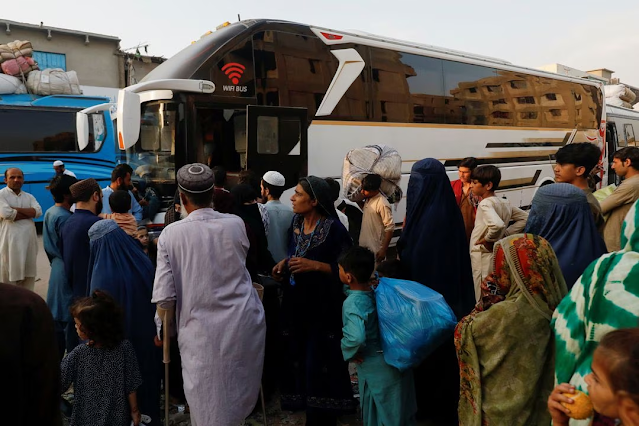Afghans Return to Taliban Rule as Pakistan Moves to Expel 1.7 Million
As the political landscape in Afghanistan continues to shift, neighboring Pakistan is facing a significant challenge in managing the influx of Afghan refugees who have sought shelter across its borders. In a move that has garnered international attention, Pakistan has announced its intention to expel an estimated 1.7 million Afghan refugees, leaving many Afghans with no choice but to return to their homeland, now under Taliban rule.
The situation in Afghanistan has been marked by uncertainty and instability since the Taliban's return to power in 2021. As a result, Afghan citizens who had previously fled to Pakistan in search of safety and a better life are now grappling with the prospect of returning to a country under new governance.
Humanitarian Crisis: The mass expulsion of Afghan refugees presents a humanitarian crisis of significant proportions. Many of these individuals had been living in Pakistan for years, and their return to Afghanistan comes at a time when the nation is facing numerous challenges, including economic instability, security concerns, and an evolving political landscape.
International Concerns: The forced return of such a large number of Afghan refugees raises concerns among international organizations and governments. The United Nations and various humanitarian agencies are monitoring the situation closely and working to provide assistance to those affected.
Taliban's Responsibility: The Taliban, which now holds power in Afghanistan, has a critical role to play in ensuring the safety and well-being of returning Afghan refugees. The international community is closely watching to see how the Taliban government will address the needs of its citizens, especially those who had left the country due to conflict and insecurity.
Long-term Solutions: This crisis highlights the need for sustainable, long-term solutions to address the Afghan refugee issue. It is crucial for the international community to work together to find ways to provide security and stability in Afghanistan, reducing the need for Afghan citizens to seek refuge in neighboring countries.
Global Solidarity: The situation underscores the importance of global solidarity and cooperation in addressing refugee crises. While Pakistan's decision to expel Afghan refugees is driven by its own challenges, it is a reminder that the world must come together to support those who have been displaced by conflict and insecurity.
As the Afghan refugees return to their homeland under the rule of the Taliban, the international community faces a significant test of its ability to respond to a complex and multifaceted crisis. It is imperative for governments, organizations, and individuals to work collaboratively to provide aid and support to those affected, while also seeking long-term solutions to ensure stability and security in Afghanistan.

Comments
Post a Comment